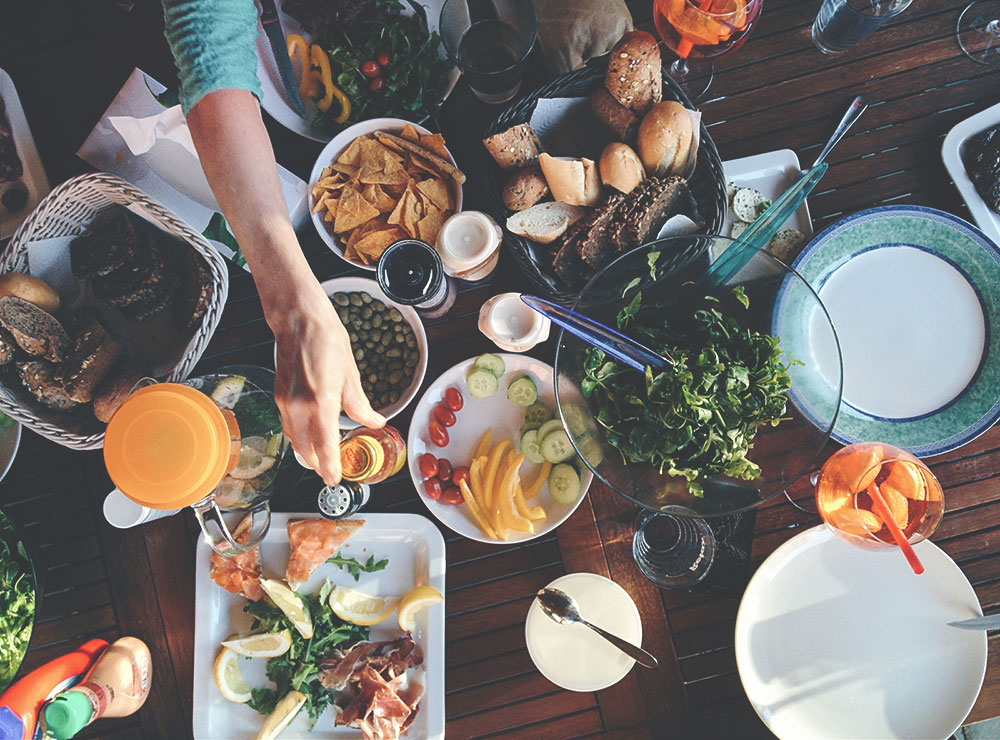Warmer weather is known to breed foodborne illnesses, so what can you do to prevent it? Here are 4 tips to keep your tummy safe this summer.
BY: ANGELA STANCIL, MS, RD, LDN
Warm summer days usher in plenty of opportunities to enjoy dining outdoors. Picnics, barbecues, and road trips are most popular during summer months, and can create a fun environment to enjoy your favorite meals and snacks.
However, warmer weather can also mean higher chances of spreading foodborne illness due to the fact that some bacteria multiply faster in warmer temperatures. Preparing food while outdoors also makes safe food handling more difficult, so additional precautions must be taken. Use these tips to keep your food safe all season, whether you’re grilling, traveling, or soaking up some summer sun.
1. Be a savvy shopper.
When shopping, choose non-perishable items before choosing frozen or refrigerated items. Avoid dented cans and torn, opened or leaking packages. Pay attention to “Sell by” and expiration dates to avoid buying items that will expire before they are used.
2. Keep things clean.
Food safety starts with clean surfaces. Clean kitchen counters and prep areas often using an antibacterial agent. Wash hands by applying soap, scrubbing for 20 seconds and then rinsing under warm water before and after handling food, after touching hair, face and other surfaces, and between tasks.
3. Divide and conquer.
Keep utensils, cutting boards and serving dishes that have been in contact with raw meats, poultry, or fish separate from other food items. If possible, use a separate cutting board for meats and vegetables or fruits. If only one cutting board is available, prep veggies and fruits first, rinse the cutting board, then prepare meat items.
4. Avoid the danger zone.
Pathogens thrive when food is held between 40°F and 140°F. Throw away any food left out at room temperature for more than 2 hours (only 1 hour if the temperature is above 90°F). Be sure to thaw and marinate foods under refrigeration, and store leftovers in shallow containers under refrigeration for no more than 4 days.
Prepare your favorite summer treats safely by keeping these tips in mind, and don’t forget to check out the USDA’s Food Safety Education page to learn about more ways to keep your food safe in the summer and all year long.
Adapted from the original article.
HEADER IMAGE: JAKUB KAPUSNAK
Angela Stancil MS, RD, LDN is a Memphis-based Registered Dietitian and food enthusiast who believes all people can learn how to fit healthy, nutritious foods into their lifestyles. Through her media work, she focuses on bringing nutrition education and science to the public that is personalized and easy to understand.

